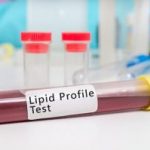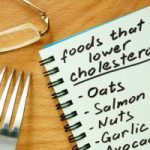 September is National Cholesterol Education Month, so we present a selection of articles discussing cholesterol and other conditions that can affect its levels, including testosterone, LDL cholesterol, triglycerides, prostate cancer, HDL cholesterol, and smoking.
September is National Cholesterol Education Month, so we present a selection of articles discussing cholesterol and other conditions that can affect its levels, including testosterone, LDL cholesterol, triglycerides, prostate cancer, HDL cholesterol, and smoking.
Controlling cholesterol levels is important as a way of preventing cardiovascular events. The articles below discuss effective ways to lower your cholesterol in order to keep your levels in check and maintain your heart health.
Testosterone and its effect on cholesterol
Advertisement
Testosterone is a male sex hormone made in the testes. It supports strength and sex drive, stimulates sperm production and sexual function, but it can also affect cholesterol levels. Testosterone and cholesterol share similar chemical structures – both are steroids – and play important roles in the body.
Present in the outer membrane of every cell, cholesterol determines which molecules can enter the cell and is a precursor for testosterone synthesis. It can be derived mainly from animal-based foods, but it is also produced by the liver and other organs.
Extra testosterone has been found to affect blood levels of HDL and total cholesterol. In one study in particular, a single dose of extra testosterone in male subjects was found to raise the levels of total cholesterol and of the liver enzyme responsible for cholesterol production. An alternative study suggested that testosterone may reduce HDL cholesterol in middle-aged men, but additional research is required to support such claim. Continue reading…
 Lower LDL cholesterol and triglycerides naturally with strawberries
Lower LDL cholesterol and triglycerides naturally with strawberries
LDL cholesterol and triglycerides can be lowered naturally by eating strawberries. The health benefits of antioxidants are well known, and strawberries are packed with these powerful substances.
For the present study, 23 healthy participants had to eat 500 grams of strawberries every day for over a month. Blood samples were taken at the start and the end of the study period for comparison.
The results showed a reduction in total cholesterol, LDL cholesterol, and triglycerides by 8.78 percent, 13.72 percent, and 20.8 percent, respectively. HDL cholesterol levels remained unchanged.
Researcher Maurizio Battino said, “This is the first time a study has been published that supports the protective role of the bioactive compounds in strawberries in tackling recognized markers and risk factors for cardiovascular diseases.” Continue reading…
 Elevated cholesterol, triglycerides increase prostate cancer recurrence risk: Study
Elevated cholesterol, triglycerides increase prostate cancer recurrence risk: Study
Elevated cholesterol and triglycerides increase prostate cancer recurrence risk, according to research. Researcher Emma Allott said, “While laboratory studies support an important role for cholesterol in prostate cancer, population-based evidence linking cholesterol and prostate cancer is mixed. Understanding associations between obesity, cholesterol, and prostate cancer is important, given that cholesterol levels are readily modifiable with diet and/or statin use, and could therefore have important, practical implications for prostate cancer prevention and treatment.”
“Our findings suggest that normalization, or even partial normalization, of serum lipid levels among men with dyslipidemia [abnormal lipid profile] may reduce the risk of prostate cancer recurrence,” she added. Continue reading…
 Causes of low HDL cholesterol levels
Causes of low HDL cholesterol levels
HDL cholesterol is known as the good type of cholesterol, as it clears upLDL (bad) cholesterol and works to lower your risk of heart disease and other cardiovascular conditions. When HDL cholesterol is low, your heart disease risk goes up because of LDL cholesterol buildup in the arteries, which makes them stiff and clogged, thus hindering proper blood flow. This puts added stress on the heart, increasing the risk of damage and disease.
The optimal level of HDL cholesterol for both men and women is 60 mg/dL or above. HDL cholesterol level below 40 mg/dL in men and below 50 mg/dL in women is considered risky for the heart. Continue reading…
 Effects of smoking on cholesterol levels
Effects of smoking on cholesterol levels
Advertisement
Smoking can negatively impact your health in many different ways, including cholesterol. Having high cholesterol levels and smoking can be a dangerous combination for your heart. Your risk of a heart attack and stroke rises significantly if both these factors apply to you.
Smoking damages your arteries and blood vessels, increasing the risk of cholesterol plaque buildup. Furthermore, smoking reduces your HDL cholesterol, which is a good kind. HDL cholesterol is necessary because it absorbs LDL ‘bad’ cholesterol and carries it back to the liver where it can be flushed from the body.
The risk of heart disease is two to four times higher among smokers, and the risk is higher if you smoke and have already been diagnosed with high cholesterol. Your risk of heart disease rises tenfold if you are a smoker, have high cholesterol, and have a family history of cardiovascular conditions. Continue reading…
